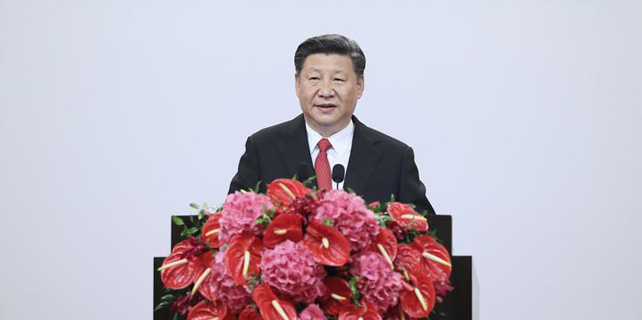Fund gives lenders run for their money
Yu'E Bao, one of China's most popular internet-based funds, had amassed 1.43 trillion yuan ($210.5 billion) of assets under management by the end of June, which has already exceeded the size of individual deposits at some of China's largest banks.
According to data from Tianhong Asset Management, which runs Yu'E Bao, the assets under management of Yu'E Bao surged some 80 percent in the past six months from around 800 billion yuan by the end of December 2016.
The quarter-on-quarter growth of Yu'E Bao's assets under management is about 30 percent.
Analysts said that the phenomenon reflects how rising numbers of new investment tools are attracting individual investors and capital from conventional channels, such as banks.
The assets under management of Yu'E Bao has already exceeded the combined size of time deposits and demand deposits of individuals at China Merchants Bank (1.3 trillion yuan) and the size of demand deposits of individuals at ICBC (1.09 billion yuan).
If the internet-based fund which is developed by Alibaba Group keeps quarterly growth of 30 percent, its assets under management are expected to exceed the demand deposits of Bank of China, one of China's largest lenders, which posted 1.6 trillion yuan in individual demand deposits at the end of 2016.
According to a research note from Beijing-based TX Investment Consulting, seasonal tight interbank liquidity has pushed price growth in monetary markets and boosted the yield of monetary funds.
The monetary market expanded at around 25 percent in the second quarter of 2017.
"Most of the growth in overall fund market comes from growth of monetary funds. Monetary funds are a star category among investors," the report said.
According to data from the Asset Management Association of China, the combined size of monetary funds in China expanded from 4.03 trillion yuan by the end of March to 5.17 trillion yuan, about 28 percent quarter-on-quarter growth.
Average yield for demand deposit in most of China's lenders is somewhere between 0.3 percent and 0.4 percent, while the yields for most of monetary funds are above 4 percent.
"It is true that generally speaking, demand deposits are losing their attractions among individual investors, particularly in big cities and among young investors who are exposed to wide range of options for handling idle cash. Funds are seen as offering higher interest rates than typical bank savings deposits. Investors need to bear in mind that investment funds are also riskier than savings deposits. Losses may occur," said Wan Lei, analyst with Shanghai Wan Sheng Investment Consultancy Services.
- No timetable set for Ant Financial listing
- New Alibaba book chronicles rise of China's Internet, private sector and its largest e-commerce company
- The booming business of fintech draws massive investment
- Internet will continue its disruptive course
- Monetary easing encourages fixed-income asset investment: Report
















